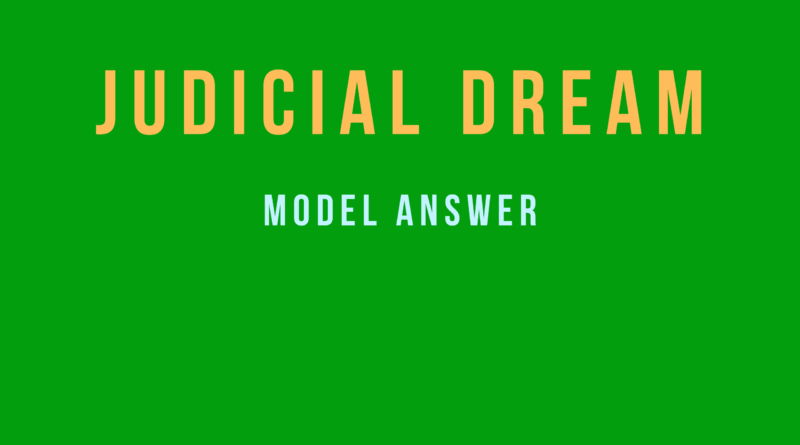SOLEMNISATION OF MARRIAGE
Explain the conditions to solemnize a valid marriage and discuss whether the child marriage is valid under Hindu Marriage Act, 1955 or other general Laws.
Or
Discuss the conditions which the parties have to fulfil to solemnize a valid marriage and explain the status of child marriage in India with case laws.
Marriage is one of the most important phase in every persons life because it adds a unit into one’s life. Marriage allows two persons of different sex to live with each other and enjoy the companionship of each other. It allows the spouses to procreate a child and provides a legitimacy to a child. It arises some rights and obligations and expect from both the spouses to fulfil their matrimonial duties.
But parties can enjoy the benefits of marriage and all these rights and obligations arise only if the marriage solemnize between parties is a valid marriage and Section 5 of Hindu Marriage Act, 1955 provides the conditions which the parties have to fulfil if they want to solemnize a valid marriage.
According to section 5 of Hindu Marriage Act, 1955, to solemnize a valid marriage, any of the party has not a spouse living at the time of marriage. In a leading case of Yamunabai vs. Anantrao (AIR 1988 SC 644), Supreme Court held that “In the case of bigamous marriage the second wife has no status of wife as the second marriage during the lifetime of first spouse is null and void.
Moreover according to this section, each party to a marriage should be of sound mind and capable of giving a valid consent. Section 5 states that every party should be fit for the marriage. If any party has been suffering from the problem of mental disorder and is unable to consummate a marriage and procreate a child then in such a case another party must have knowledge of this fact before solemnizing a marriage. If latter spouse knows this fact after solemnizing a marriage then this marriage will be considered as voidable marriage under section 12 of Hindu Marriage Act, 1955 and he has right to dissolve the marriage.
In a leading case of R. Lakshmi Narayan vs. Santhi (AIR 2001 SC 2110), Supreme Court held that if one spouse is suffering from mental disorder and it is impossible for another spouse to live a normal married life with former spouse then the latter can get the marriage dissolved. Such marriage will be considered as voidable under section 12 of Hindu Marriage Act, 1955.
According to section 5 of Hindu Marriage Act, 1955, to solemnize a valid marriage, the parties should not be spindas of each other and not within the degree of prohibited relationship. If the parties are spindas of each other or within the degree of prohibited relationship and they solemnize a marriage, that marriage is a void marriage according to section 11 of Hindu Marriage Act, 1955.
Section 5 of Hindu Marriage Act, 1955, prescribes the marriageable age. According to the section the bride should be of 18 years or more than 18 years and the Groom should be of 21 years or more than 21 years. According to the section, parties after completing this age can solemnize valid marriage.
But if they solemnize a marriage even before completing this age, in that case what will be the status of that marriage is always seem to be a controversial and debatable issue.







